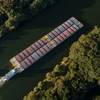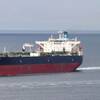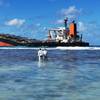Australian Report Backs Coastal Shipping to Boost Supply Chain Security
A report into the security of Western Australia's supply chains has recommended policy and regulatory reforms to support Australian-owned shipping lines competing for domestic sea-freight work.
The recommendation has been made in a report by the Western Australian (WA) Government's Shipping and Supply Chain Taskforce. Co-chaired by Kyle McGinn and Jessica Stojkovski, the Taskforce was established following the floods in South Australia in early 2022 that cut off supplies of essential groceries to Perth and regional WA.
The aims of the Taskforce were to investigate:
• the capacity for increased use of coastal shipping for interstate and intrastate trade;
• the potential for improved training and career pathways for WA maritime workers; and
• possible measures to improve landside supply chain resilience and cost-effectiveness.
The newly-released report makes recommendations on shipping policy and regulatory reforms which could improve commercial conditions for Australian-owned shipping lines competing for domestic sea-freight work. It recommends that work be done with shipping lines serving Australia to develop partnerships under which Australian seafarers and trainees can gain work experience that is essential for their qualifications.
The report also identifies ways in which shipping could be used to relieve supply chain weaknesses in Northern Australia and in remote WA communities.
The taskforce will continue to operate under the leadership of McGinn and Divina D'Anna, whose region in the Kimberley region will benefit from improved access to coastal shipping and other measures strengthening supply chain resilience.
In addition, the government is committed to gaining First Point of Entry (FPOE) status from the Federal Government for the Kimberley ports of Broome and Wyndham, thereby stimulating local economies in the north of the state. FPOE ports are certified to receive imported goods from ships sailing directly from foreign ports. Such ports require suitable bio-security infrastructure and inspection resources to manage risk.
At present, the Kimberley economy suffers from the need for imported goods to be delivered over long distances by truck from FPOE ports such as Fremantle, Port Hedland and Darwin.
Ports Minister David Michael has written to the Federal Government to present the Taskforce's report and call for the granting of FPOE status for Kimberley ports. "Australia now has very few ships serving our ports under Australian flags. Most shipping serving Australian ports is foreign-owned and crewed.
"As an island nation highly dependent on seaborne trade, I'd like to see this change. Global security concerns suggest that having more Australian shipping would be in the national interest. I know that the Federal Government shares this view, which is why the Cook Government is committed to working with it towards this aim."
McGinn said: "The risk of interruptions to rail and road supply chains serving WA is growing each year due to climate change, flooding and fire. If properly supported, Australian flagged and crewed vessels can strengthen our essential supply chains in future.
"Increased shipping capability will also help provide better training and career pathways for Australian maritime workers, not just on ships but in a range of essential professions in our ports, such as pilotage and harbour management."
"Supply chains in remote areas such as the Kimberley are fragile, especially in the wet season,” said D'Anna. "The flooding last summer overwhelmed roads and bridges causing major shortages of essential goods for our communities. Better access for shipping and improved logistics infrastructure would create more security in all seasons for the Kimberley."










